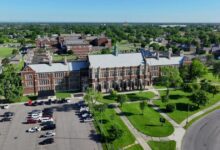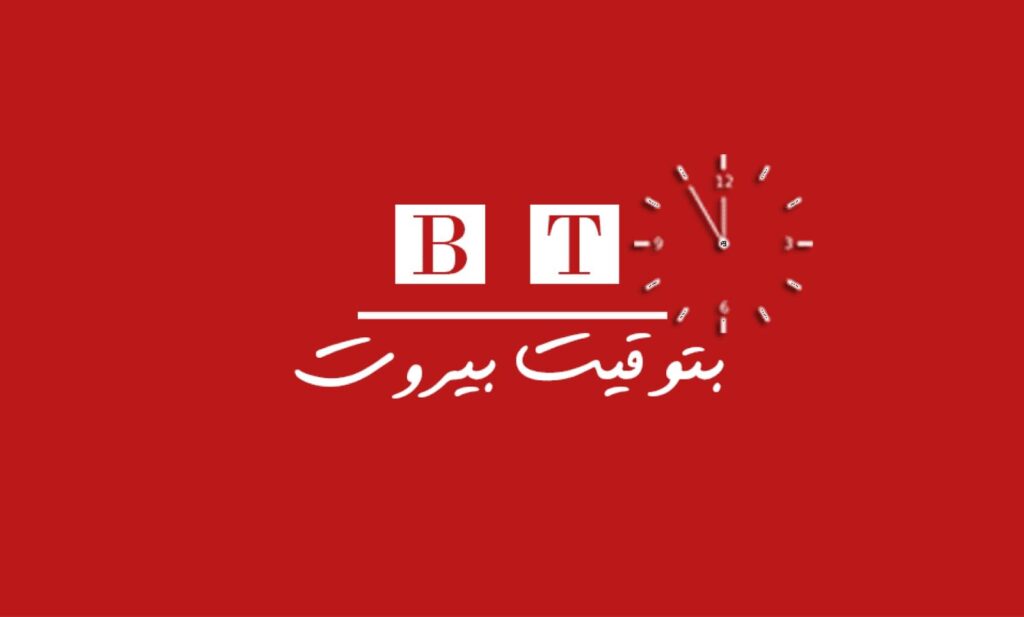اخبار مترجمة :‘Britain’s on its knees’: The broken UK town backing Nigel Farage | Politics
He stops at an ice cream stand but decides against a purchase.
“I don’t give my name out because you could be Old Bill (police), couldn’t you?” he jokes in a thick East End, London accent. He requests a pseudonym and refuses to be photographed.
At 75, he has lived in Clacton for years having moved from the capital. He has a head of slicked-back grey hair and is dressed in a red polo. He is suspicious of the media and political class and talks of a bygone era.
“We live in a woke country where we’re told what we must think, what we must say, and what we should do. It ain’t the world that we grew up in … We had respect for other people, manners.”
Lee is among the many Clacton locals set to vote for Nigel Farage and his Reform UK party, a right-wing populist startup movement that has dynamited a largely dull and predictable campaign season.

The Labour Party has long been expected – and still is – to win a majority on July 4. But Farage’s shock announcement earlier this month to lead Reform and stand in Clacton has boosted their chances. Reform is now fighting for dominance in opposition and recent polls indicate it is closing the gap against the Conservatives.
The telegenic Farage, one of the most recognisable British political figures and among the architects of Brexit, is widely expected to finally become an MP on his eighth attempt – with the biggest swing in recent history.
Clacton strongly supported Giles Watling, a Tory, in the 2019 election with 72 percent of the vote. In less than a fortnight, Farage is predicted by the Survation pollster to win more than 40 percent compared with Watling’s 27 percent. Jovan Owusu-Nepaul, a young and stylish Labour candidate, is likely to secure 24 percent.
‘All them boats coming here, I honestly believe they’re terrorists’
A dozen pro-Farage voters Al Jazeera interviewed said undocumented immigration, Reform’s main focus, was their top concern. Several believed in dangerous conspiracy theories.
“All them boats coming here, I honestly believe they’re terrorists,” says Lee, referring to the migrants and refugees who arrive on Britain’s shores on flimsy dinghies from France. “They’re coming here to invade us and eventually, they’ll kill us all and wipe us off the face of the Earth.”

“I doubt that very much,” cautions Jeff Bray, a financial consultant working on Reform’s canvassing campaign from its makeshift office above an amusement arcade.
“No, they’re not all terrorists. But let’s be realistic, some of them could be. I don’t know, you don’t know, and the problem is nobody knows … No country wants to let bad people in through their borders.”
Surrounded by boxes of posters and leaflets featuring a cheerful Farage, Bray has abandoned his old loyalty to the Conservatives.
When asked how Reform envisions limiting migration, he says, “You’ll need to ask Nigel to get a really specific answer. What I never do is speak for Nigel. He’s much cleverer than I am.”
Reform’s ‘contract’
Reform, formerly known as the Brexit Party and founded by Farage, has branded its manifesto as a “contract”.
The party backs freezing “non-essential” immigration and would ban students from being joined by their partners or children.
“Essential skills, mainly around healthcare, must be the only exception” for accepting migrant workers, the manifesto says, without providing further details.
It would tax companies a higher rate for employing migrants and says it would aim to “pick up illegal migrants out of boats and take them back to France” – something Paris would not agree to that would test refugee rights laws.
Keith Bloomfield, a 70-year-old Reform member who has previously voted for Labour, connects immigration to violent crime. He has travelled 70 miles from Dartford to support Farage on the campaign trail and is brimming with fan-level excitement.
“Immigration leads to disaster,” he says. “Look, I’m not a racist. Nigel’s not a racist. But we want the best for our country now.
“Foreign input into the country (is) causing knife crime, gun crime, acid (attacks). We didn’t have this (before).”

He claims to have “no problem” with Turkish, Indian and Jewish people in the UK but sees a “big problem” in London.
“Women, like from Islam, you know, they put the mask on, they have to do this, you know? They can’t go out and enjoy themselves.”
He also believes irregular migrants and refugees are going to “shoot” and “knife” people.
“We’ve seen it,” he says ominously, and suggests crime in London is largely carried out by migrants.
Lynne, a former Tory voter who refused to provide her last name, is more concerned with employment.
“Well, we’re just getting too many immigrants coming over here, especially the illegal ones. And you know, basically they’ve taken the few jobs that we’ve got here,” she says.

Some of Clacton’s many wounds are visible on the streets.
There are hardly any customers at seaside cafes, several shops have been shuttered, and young homeless people aimlessly mill around a central square.
The town is home to high levels of unemployment and economic inactivity – 5.1 percent and 32.9 respectively compared with the national average of 4.4 percent and 21.2 percent.
“Clacton is a seaside town that’s falling apart,” says Alexander Armitt, a 62-year-old who is medically retired, having worked in printing.
Farage tempted him away from his “lifetime Labour supporter” status, he says.
“His policies are what encourage me. I don’t want another Tory government … And his views on immigration are something that’s attracted me.”

But immigration is unlikely the root cause of Clacton’s problems. According to the 2021 census, only 2.4 percent of people in the Tendring area, the Essex council where Clacton is the largest town, were non-UK passport holders, compared with the national average of 9.9 percent.
Almost 70 percent of people in Tendring voted for Brexit in 2016; turnout was also high at 74.5 percent. The vote to leave was among the UK’s highest. About 95 percent of the town’s population is white.
“(Farage) thinks that we are an easy place to gain in an election because people here are so disillusioned and disenfranchised,” says Natasha Osben, the Green Party candidate for Clacton who’s expected to win just five percent of the vote share.
A single mother of four, Osben represents the area she was born and raised in, unlike Farage, a privately educated former commodities trader who lives in Kent, some 80 miles away.
“People feel angry and they have bought a scapegoat that the sole reason for these problems is migration, even though if you look around, we’re not a very diverse area, there’s not a large amount of immigration here.”

Net migration to the UK dropped 10 percent to 685,000 in 2023, compared with a year earlier, but remained above average historical levels. The majority of people travelled for work or to study, with far fewer – 29,437 last year – arriving via the perilous journey across the Channel from France.
But migration is a central issue for voters across the political spectrum, especially after the Conservatives failed on their promise to “stop the boats” and deport irregular migrants to Rwanda.
During a speech made atop a campaign bus in Maidstone, Kent’s largest town, Farage blamed immigration for rising rent prices, worse traffic, a strain on social housing and hospital waiting times.
“It’s simple: demand, supply,” he said.
Toby James, professor of politics and public policy at the University of East Anglia, says Reform’s “simple narratives” are gaining traction because the economy has suffered “anaemic levels” of growth for years.
“The prices that people are paying in the weekly shop have rocketed – and not come down. Meanwhile, the quality of public services has been declining with record lows in satisfaction in public healthcare,” he says. “Support for the party that has been in power for the last 14 years plummeted as a result. Reform have been able to capitalise on this situation … notably blaming problems on immigration.”

Most Reform supporters Al Jazeera spoke to appreciate the party’s populist agenda and speak of Farage fondly, as though he is a family member.
He “actually speaks from the heart”, he’s “honest”, he’s “a believer in equality”, he’s a “very good gentleman”, a “lovely man”, voters said in Clacton.
At the same time, they brush off documented allegations of racism within the party as biased media campaigns. Several Reform candidates have been dropped over offensive messages shared on social media. Some defend the accused as simply sharing “opinions”.

Shabna Begum, head of the Runnymede Trust race equality think tank, believes the election is being fought by all parties on “toxic migration policies, which are based on racialised ideas of who is welcome and who is not”.
Reform has been given “considerable media encouragement and curation” with leaders like Farage often enjoying soft-ball interviews, she says.
“Decades ago, what would have been considered an extreme political right in terms of explicit hostility towards migrants, asylum seekers and Muslim people has become mainstream.”

The Farage phenomenon in political discourse should worry marginalised communities, agrees Taj Ali, editor of the left-wing Tribune magazine.
“Just recently, Farage suggested on Sky News that British Muslims ‘Do not subscribe to British values’ and loathe what people stand for, implying they have dual loyalties. The party depicts itself as anti-establishment, tapping into culture war rhetoric around so-called out-of-touch ‘metropolitan elites’ and minority communities living parallel lives.
“While the party will significantly damage the Conservative Party in the general election, it is likely to enjoy significant support under a Labour government, too, and could erode support in traditional working-class heartlands unless Labour is able to offer a credible alternative following 14 years of Tory rule,” Ali says.
If Reform performs well on July 4, the Tories, too, might feel compelled to adapt, he says. “The Conservative Party will shift to the right and adopt much of their rhetoric, too.”
While most are hooked on Farage’s anti-immigration fever, Al Jazeera interviewed one would-be Reform voter who was slightly sceptical.
“I feel that they’re (migrants) sort of scapegoated at times,” says Edson, an estate agent in his thirties. But he quickly adds, “With everything, you’ve got to take it with a pinch of salt … we don’t even know if he’s going to get voted in, so it’s not worth hanging your hat completely on it.”
Matthew Francis, a political historian at the University of Birmingham, noted a recent YouGov poll of would-be Reform voters which included a “quite striking finding”.
“When asked whether they would prefer a Labour or a Conservative government, three-quarters of respondents opted for ‘neither’,” Francis says. “Immigration is a major issue for these voters … Farage and Reform’s hard line on that issue appeals to them.”

As the sun begins its descent in Clacton, 36-year-old Shama Martin, a professional gardener who also runs a charity in the town, stops at an international food market to buy a tin of ackee, the national fruit of Jamaica. He has just finished work.
He has a personal connection with Farage, who contacted him last year to invite him to speak on GB News, the right-wing channel of which he’s a host, to laud his humanitarian work on homelessness.
“If you’re in Britain, Nigel’s trying to better Britain for you and me and for everybody,” he says. “Britain’s on its knees at the minute, it’s lying on its belly. Once we get Britain back on its feet, then we can open immigration back up and welcome the rest of the world.”

JOIN US AND FOLO
Telegram
Whatsapp channel
Nabd
GOOGLE NEWS
tiktok
مصدر الخبر
نشر الخبر اول مرة على موقع :www.aljazeera.com بتاريخ:2024-06-25 11:42:18
ادارة الموقع لا تتبنى وجهة نظر الكاتب او الخبر المنشور بل يقع على عاتق الناشر الاصلي
تم نشر الخبر مترجم عبر خدمة غوغل






